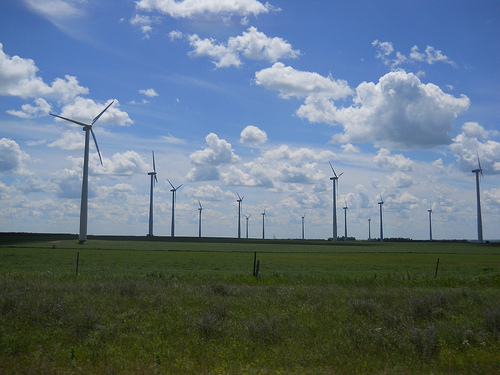 This post originally appeared on Energy Self-Reliant States, a resource of the Institute for Local Self-Reliance’s New Rules Project.
This post originally appeared on Energy Self-Reliant States, a resource of the Institute for Local Self-Reliance’s New Rules Project.
A 50-turbine wind farm in Goodhue County in southeastern Minnesota has met with stiff local resistance, a frequent tale in the wind industry. Recently, the project developer won a key court case to move forward, after making concessions about the distance (“setback”) between the wind farm and local homes. However, many residents remained unconvinced that the project was in their best interest.
But this summer the project developers offered $10,000 payments (over 20 years) to about 200 local residents to try to win them over. The concept might work, although the payments – $500 per year – aren’t particularly large.
In a recent European study, researchers found that citizens generally have two priorities for renewable energy projects: avoiding environmental and personal harm and sharing in the economic benefits from their local energy resources. The $10,000 checks could go a long way toward satisfying local residents that they aren’t being simply colonized for their wind resource.
Will it work?
The wind project had already been certified as “community-based” under a 2005 state statute, but local opponents contested that a wind farm development by a company owned by Texas oilman T. Boone Pickens hardly qualified. It remains to be seen whether a more significant a direct benefit for nearby residents is enough to buy their support.



